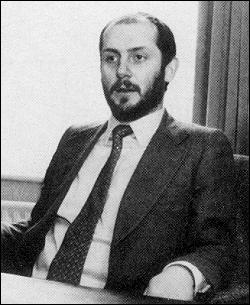
News
The latest on Spectrum delivery dates and the moves into telesoftware by Sinclair
Programming Tips
Ian Stewart gives advice on how to upgrade your programming for the Spectrum
Helpline
Andrew Hewson answers problems you are already having on the Spectrum
Program
We publish one of our reader's early attempts at using the new machine
First Impressions
A novice's view of the Spectrum and its colourful capabilities
ANGER is growing among the many people still waiting for their Spectrums up to 10 weeks after placing their orders. Accusations have been made that the customer service department at Sinclair Research has been quoting 28 days delivery for new orders, despite knowing they could not be met.
One person who contacted Sinclair User said that on the basis of the department's assurances he had ordered a Spectrum for his son's birthday. "He sold his ZX-81 expecting to have his Spectrum and then the order was returned when Sinclair said it could not meet the delivery date," he said.
Ronald Harris of Swansea said he had been waiting since the end of May. "I have the feeling I am just being strung along and that I haven't been told the truth. I wouldn't mind so much if I was told how long it would be but to keep telling me it will be another three weeks is not right.
"What annoys me is that it will be about three months from order when I get my Spectrum but the order forms still say to allow 28 days for delivery."
A spokesman for Sinclair Research said that the company regrets the delays, which were now about eight weeks for new orders. He added that the problems had been caused by the level of response, which is much higher than expected.
The launch of the Spectrum had been based on the experience of the ZX-81 but order levels had been even higher.
Based on the latest information, which is changing from day to day, it is estimated that delivery time should be down to 28 days by the end of September. In the meantime, the spokesman said that the company will be notifying people regularly of the position.
He added that if customers telephone the distribution depot quoting their order, they should be able to receive some idea of when the order would be despatched but it would not be possible to give an exact date.

NIGEL SEARLE |
SINCLAIR RESEARCH intends to move into the telesoftware market early next year. It is developing a Prestel adaptor for the Spectrum which will sell for "well under £100 and allow users to load programs direct from Prestel."
It is also considering an adaptor which will allow users to input information into Prestel.
The first adaptor will be based on Martochoice hardware which shared first prize in the competition organised by Prestel to find an adaptor for the ZX-81. Martochoice is acting as consultant in the development for the Spectrum.
Announcing the move, Nigel Searle, head of the computer division of Sinclair Research, said that software would be the market in which to make profits in the future. "The prices of hardware products will be driven down by the competition from the Japanese," he said.
There were, however, problems with the present system of software distribution. It was subject to piracy and distributors could never be sure which cassettes would sell, with the possibility of having unsold stocks remaining on the shelves.
"By transmitting software by teletext or viewdata, those problems are overcome, with the bonus that it can be updated quickly," Searle said.
He refused to say how much the adaptor may cost, except that it would be well below £100. The Martochoice model was expected to sell for about £80 but it is understood that the Sinclair version will be using advanced components which could reduce the cost.
A RANGE of software for the Spectrum is being published in September. Sinclair Research has been putting together the range from the products of a number of software houses.
A spokesman for Sinclair says that a number of software manufacturers have made presentations in the last few months and the range is now ready to be released.
SINCLAIR Research has at last been given some recognition by the Government. The Spectrum has been included in the Department of Industry Micros in Primary Schools scheme.
Under the scheme, schools wishing to take the Spectrum will get a grant of 50 percent of the cost. In total, the scheme is worth up to £9 million and runs from the beginning of October to the end of 1984.
The other machines included in the scheme are the BBC Model 'B' and Research Machines Link 480-Z.
Clive Sinclair said following the announcement that he welcomed the move and thought the Spectrum was the ideal machine for the market.
A spokesman for Sinclair Research added that it was difficult to judge what it would mean for the company but if it achieved one-third of the market, which includes 27,000 schools, it would be doing well.
The Spectrum is the cheapest package of the three available with a full system including a cassette recorder, a colour monitor and an initial teacher training pack costing £346. The BBC was priced at £540 and the 480-Z at £818.
THE U.S. will have to wait until the new year at the earliest before it will see the Spectrum. Nigel Searle, head of Sinclair Research computer division, has said that the company is making sure that production is adequate before entering new markets.
That followed the experience last year; with the ZX-81 when it was put into WH Smith and launched in the States shortly before Christmas. That, combined with a big Christmas demand in Britain, resulted in delivery delays.